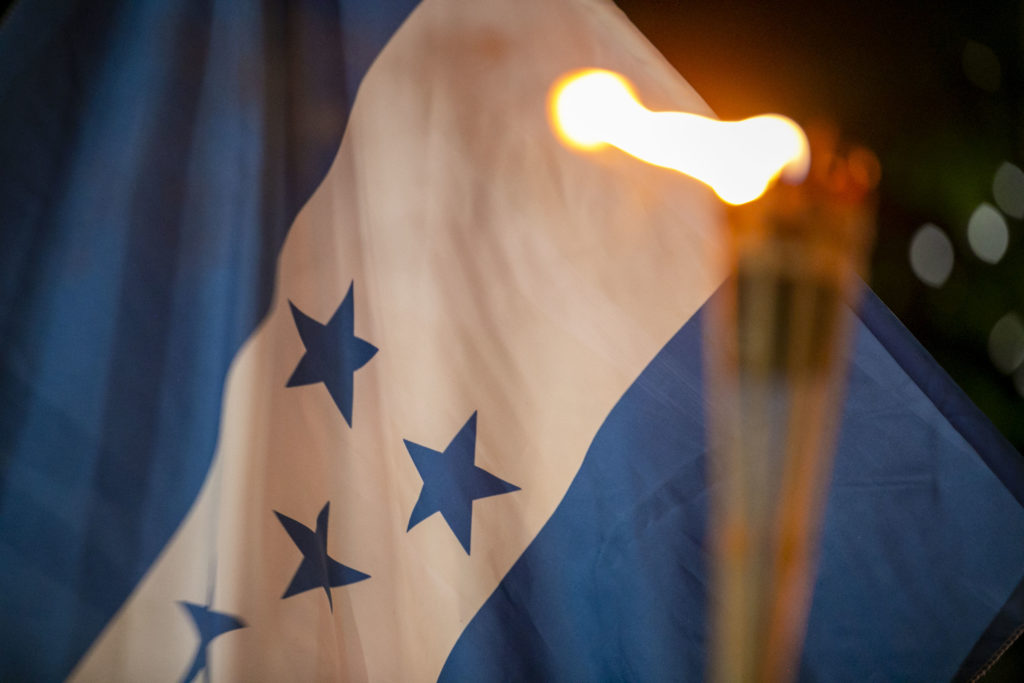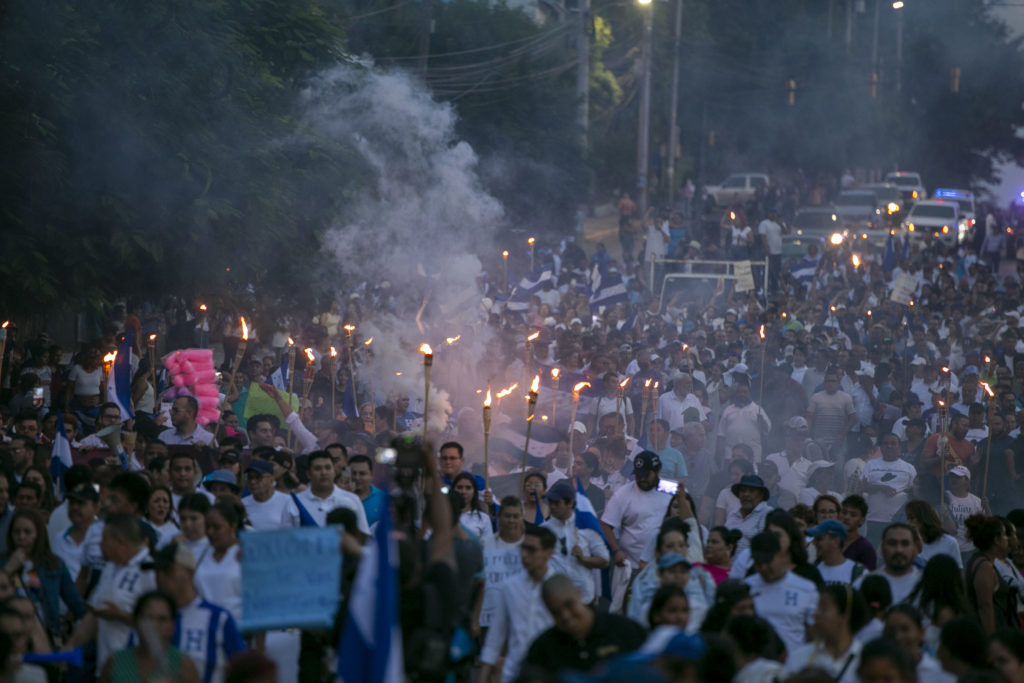On the evening of September 6, hundreds of Hondurans, including leaders of opposition parties, took to the streets to demand the continuation of the US extradition treaty and denounce nepotism in the Castro administration. The protest was provoked by an Insight Crime article showing Carlos Zelaya, brother-in-law of the president and former secretary of the National Assembly, negotiating with drug traffickers. The government has accused the opposition, civil society, news outlets, and foreign actors of plotting a coup.
Text and photography: Fernando Destephen
María José Sosa, a Honduran woman who took part in the protest, said she “is indignant at the actions of the government” and “never imagined the degree of harm they would do to Hondurans.”
It all started on Wednesday, August 28, when US Ambassador to Honduras Laura Dogu issued statements that shook the political landscape. Dogu expressed concern about the meeting between Chief of Honduras’ Armed Forces Roosevelt Hernández and Honduras’ former Secretary of Defense José Manuel Zelaya with Venezuela’s Defense Minister Vladimir Padrino López, who was accused of drug trafficking in the US.

On August 28, President Xiomara Castro ordered Foreign Minister Enrique Reina to denounce the US extradition treaty, purportedly in defense of Honduran sovereignty against interventionism by the US. The decision provoked a backlash, and the opposition called for protests on August 30, which did not take place.
On August 31, Carlos Zelaya appeared before the Attorney General’s Office and issued a statement about a video from 2013 in which he is seen meeting with drug traffickers. He said the meeting was a set-up and denied any involvement of himself and his family in illegal activities.
On September 2, he handed in his resignation as member of the National Electoral Council, but the National Assembly made no official pronouncements. On September 3, Insight Crime released videos showing Carlos discussing bribes with drug lords. In the meeting, they mentioned that half of the money would go to the “Commander,” a nickname for his brother Manuel Zelaya.
President Castro described Carlos’s actions as deplorable. He did not “inform the coordinator, presidential candidate, and the party” and attended the “meeting behind our backs,” she said. “We deplore any action or negotiation between politicians and drug traffickers. This will not be tolerated.”
Amid the political crisis, the opposition called for mass protests, which were led by retired General Romeo Vásquez Velásquez, who headed the 2009 coup that ousted Manuel Zelaya, and Rashid Mejía, leader of the movement Una Sola Voz por Honduras.
One of the protesters told Contracorriente, “The country is in danger and we cannot continue living under the rule of people who do not uphold the law; incompetent, dishonest people who willingly turned Honduras into a drug trafficking hub.”
In 2015, then President Juan Orlando Hernández acquiesced to protesters’ demands of creating the Mission to Support the Fight Against Corruption and Impunity in Honduras (MACCIH). However, participation of the National Party and General Vásquez – whose role in the 2009 coup has been questioned – in recent protests provoked rejection among sectors of the population.






